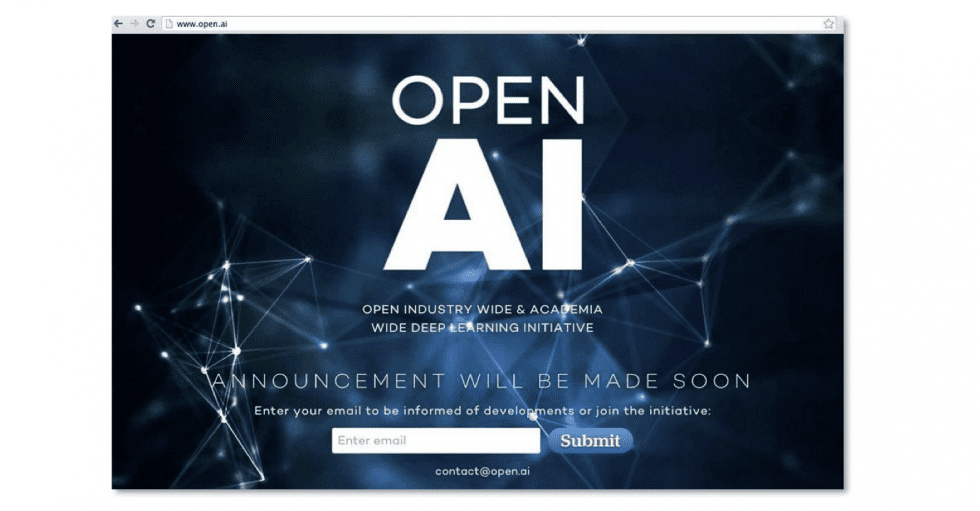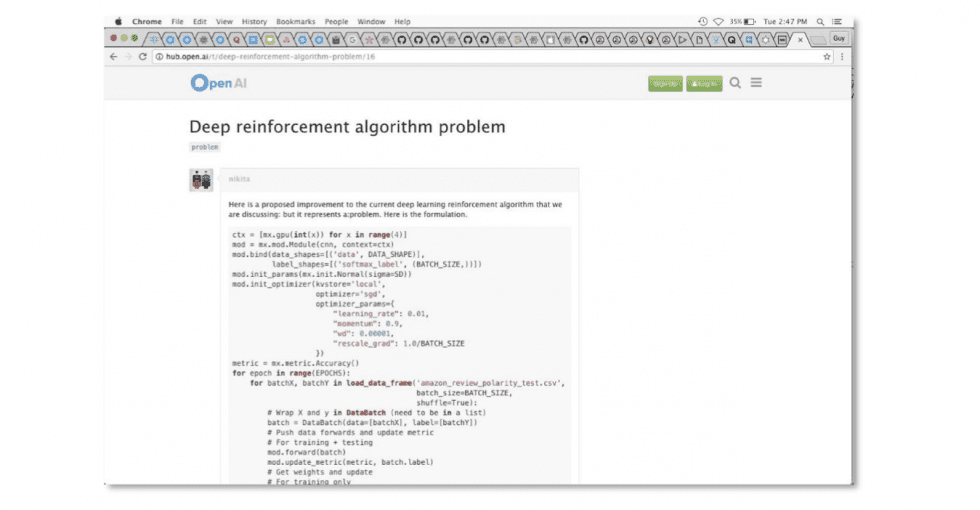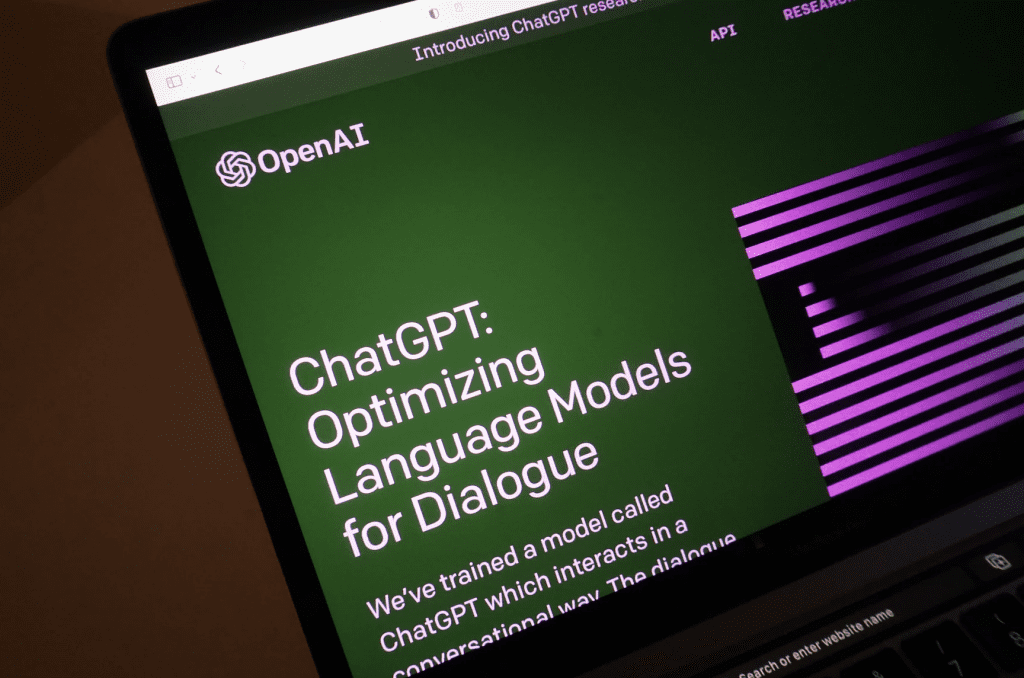After landing on the receiving end of a steady-stream of infringement and privacy-centric litigation, ChatGPT-creator OpenAI has initiated a lawsuit of its own, accusing an identically-named – but unaffiliated – company of co-opting its brand and “fraudulently divert[ing] public interest in and demand for [its] products.” According to the trademark complaint that it lodged in a federal court in Northern California on August 4, OpenAI claims that Open Artificial Intelligence, Inc. and its president, Guy Ravine (collectively, the “defendants”) “unlawfully adopted” the “Open Artificial Intelligence” name after it had already begun operating in the AI space and as a result, stands to confuse “millions of users of OpenAI’s products into mistakenly believing that [they] have any connection to, association with, or sponsorship by OpenAI when, in fact, there is none.”
Setting the stage in its complaint, as first reported by TFL, OpenAI states that it is the senior user of the “OpenAI” name and “the logos bearing that name as trademarks.” Far from an unknown entity, the San Francisco-based AI giant asserts that it has become “closely associated in the marketplace as the source of AI models and applications, including ChatGPT.” It was “only after OpenAI’s first use of one of the OpenAI marks that the defendants began using their confusingly similar mark, ‘Open AI,’” according to OpenAI, which notes that the defendants have had “nothing to do with” its well-known artificial intelligence models and applications. In contrast, they are looking to “misappropriate and monetize the hard work and goodwill that OpenAI has created by confusing consumers and the marketplace into mistakenly believing they are the originators of, or affiliated with, OpenAI’s products,” the plaintiff contends.
In a further nod to the defendants’ “improper” motives, OpenAI alleges that on December 11, 2015, the day that it announced a $1 billion funding round, which “received widespread coverage in national and international news media,” Open Artificial Intelligence’s Guy Ravine filed an application for registration for “Open AI” with the United States Patent and Trademark Office (“USPTO”) for “providing a web site featuring technology that enables internet users to share documents, images and videos.” In connection with the application, “Ravine declared that: (i) he first used the infringing mark in commerce on March 25, 2015, and (ii) he was currently using the infringing mark in commerce as of December 11, 2015,” per OpenAI.

While the USPTO preliminarily refused to register the mark because the specimen (above) did not show the applied-for mark in use in commerce, OpenAI claims that the defendants responded by “manufactur[ing] evidence related to their website to mislead the USPTO into believing their mark was being used in commerce even though [they] had never used the infringing mark in connection with any goods or services [they] offered in interstate commerce – i.e., as a trademark.”
Ravine responded with a new specimen (below, in part), which contained two screenshots from a subdomain of www.open.ai, www.hub.open.ai, and which he represented as being “in use in commerce at least as early as the filing date of the application.” The problem, according to OpenAI? The substitute specimen “did not reflect the infringing mark’s actual use in commerce as of December 15, 2015,” and instead, Ravine “created the specimen and the purported website posts to mislead the USPTO into believing that the infringing mark was being used in commerce, thereby resolving the defect the USPTO cited in refusing to register the infringing mark.” (Specifically, OpenAI states that the substitute specimen “did not reflect the infringing mark’s actual use in commerce as of December 15, 2015,” as all three threads depicted in the specimen “contain content copied nearly verbatim” from content that was posted on GitHub, an unaffiliated third-party website, in 2016.)

Fast forward to March 2017 and in a subsequent office action, OpenAI states that the USPTO “refused registration of the infringing mark on the Principal Register, finding the infringing mark was descriptive,” prompting Ravine to amend the application to seek registration on the Supplemental Register. The USPTO added the “Open AI” mark to the Supplemental Register on August 1, 2017 (Reg. No. 5,258,002).
All the while, OpenAI claims that the defendants’ website www.open.ai, which for several years redirected to its www.openai.com site, has caused actual confusion among consumers. OpenAI claims that it contacted the defendants in February 2022 to inform them that their site was redirecting to OpenAI’s site and to inquire about acquiring the domain to no avail. OpenAI asserts that Ravine responded the same day, saying, “Elon Musk paid $11 million for the Tesla domain and trademark in 2017. As we both know, OpenAI holds the potential to become larger than Tesla, and in either event, will become one of the largest companies in the world in a relatively short period of time. So, the ultimate value of the domain and the brand are substantial.”
While the parties never reached a deal regarding the www.open.ai domain, OpenAI claims that the contact prompted Ravine to contact the USPTO. “Between December 2015 and December 6, 2022, the defendants never objected to OpenAI’s use or registration of the OpenAI marks,” OpenAI maintains. However, “after being contacted by OpenAI,” Ravine filed a Letter of Protest with the USPTO in December 2022 regarding OpenAI’s pending application for OPENAI for use on “downloadable computer programs and downloadable computer software using artificial intelligence,” etc., and “research and development services in the field of artificial intelligence,” etc. (Ser. No. 97/238,896) on the grounds that OpenAI’s mark is “allegedly confusingly similar to the infringing mark and should be refused registration.”
On January 31, 2023, OpenAI claims that Ravine filed another Letter of Protest with the USPTO regarding the same OpenAI application, submitting “additional evidence and continuing to argue that the applied-for mark is ‘confusingly similar’ to [its] infringing mark.”
In light of “the confusing similarity” of the Open Artificial Intelligence name to OpenAI’s well-recognized name, the defendants leave “no doubt as to [their] intent to profit by confusing the public into thinking that there is an affiliation between [them] and OpenAI,” the latter asserts. With the foregoing in mind, OpenAI sets out trademark infringement and unfair competition, and civil liability for false and/or fraudulent registration causes of action, as well as two causes of action aimed at getting the defendants’ registration cancelled based on “no bona fide use” and “misrepresenting source.” In addition to monetary damages, OpenAI is seeking preliminary and permanent injunctive relief to bar the defendants from engaging in “further acts of infringement and unfair competition.”
The case is OPENAI, INC. v. Open Artificial Intelligence, Inc. et al., 3:23-cv-03918 (N.D. Cal.)











